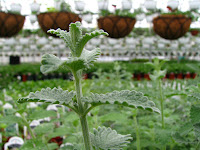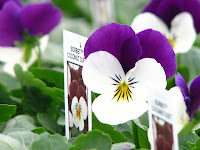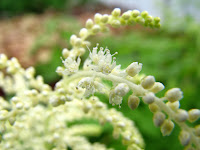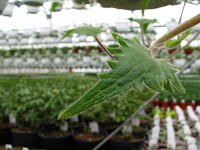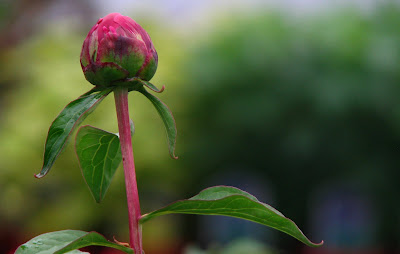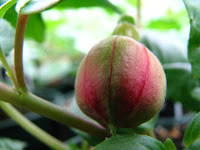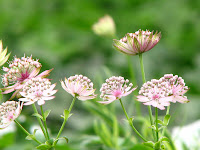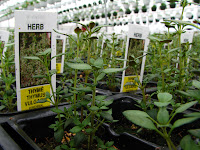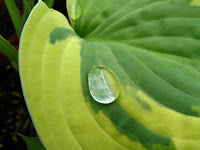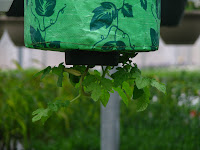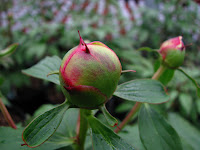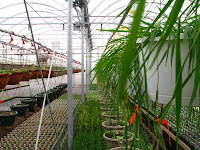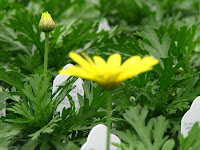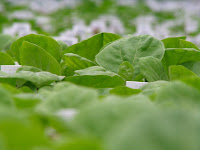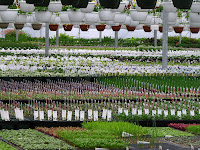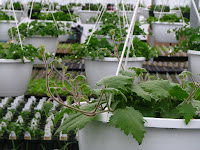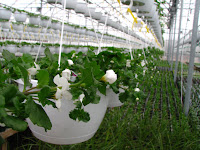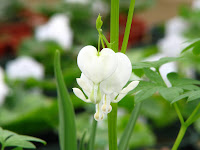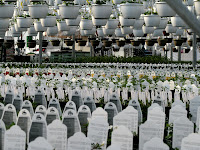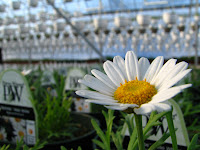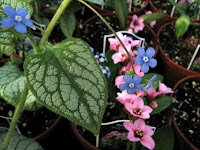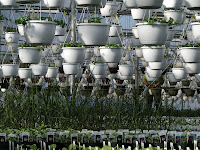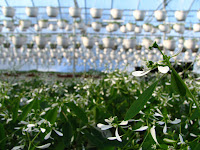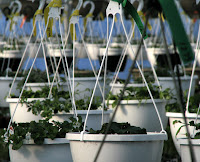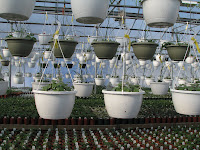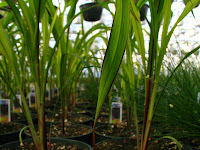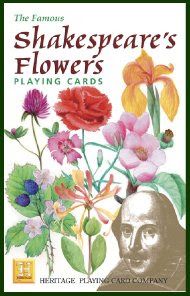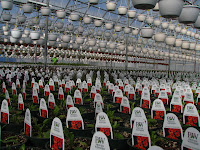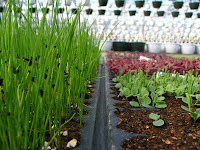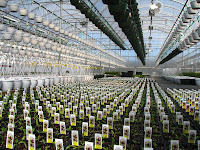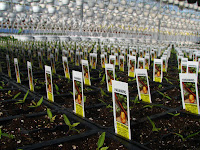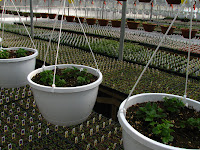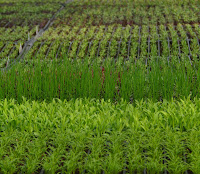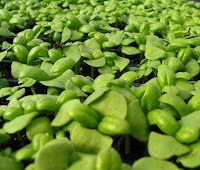Saturday, April 26, 2008
Friday, April 25, 2008
the buzziness of beekeeping
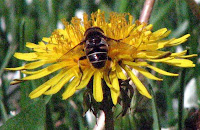 Surrounding the dandelion this bee landed on last year in my backyard are white crabapple flower petals. They fell like snowflakes, and looked like small feathers floating between the blades of grass.
Surrounding the dandelion this bee landed on last year in my backyard are white crabapple flower petals. They fell like snowflakes, and looked like small feathers floating between the blades of grass.
Established in 1881, the Ontario Beekeepers' Association is one of the oldest established farm organizations in Ontario, and was founded even before the Ontario Ministry of Agriculture and Food.
Ontario Ministry of Agriculture, Food & Rural Affairs: Apiculture infosheets and 2003 Beekeeping Industry Commodity Profile
..and from the Canadian Honey Council:
- It takes one colony of honey bees (around 30,000 bees) to pollinate an acre of fruit trees. Pollination success increases if there are more honey bees present at the time of peak flowering.
- The value of bees pollinating fruits vegetables and legumes is 10 times the value of honey produced (over $1 billion in Canada)
Published by the Canadian Association of Apiculturists
c/o Dr. Cynthia Scott Dupree
Dept. of Environmental Biology
University of Guelph
The Value of Bees to Pollination
(originally printed in Hivelights Vol 14 (4):15-21 November 2001
Agriculture and Agri-Food CanadaMarket and Industry Services BranchHorticulture and Special Crops Division)
Sunday, April 20, 2008
Friday, April 18, 2008
LUCK Garden
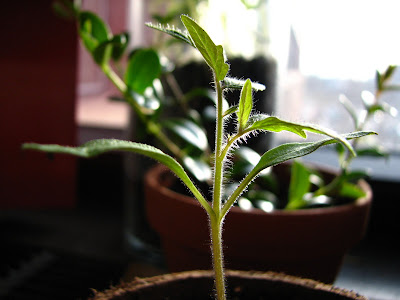 a young tomato plant in my office: planted & grown by Euan Pound (age 5)
a young tomato plant in my office: planted & grown by Euan Pound (age 5)and given to me :D
...or maybe just an L and a U...*shrug*, who knows...
native plants
sustainable water catchment systems
an ethnobotanical First Nations garden
a butterfly and bird habitat garden (in the surrounding area & greenspace)
children's art (painted benches and garden seats, watering cans, poles and structures for fun climbing plant projects)
~ Genovese Basil: as an example of an organic pest deterrent
~ Royal Burgundy Bush and Pole Beans: the purple beans that change from purple to green when cooked, and purple potatoes (Russian Blue)
~ Chioggia Beets: mild white and red striped beets
~ Tomatoes: Yellow pears, green striped Zebras, Paul Robesons, Amish Paste, German Giants, and Grape
- Edible flowers such as Nasturtium, viola, chives and other cooking herbs.
- Big seeds for little hands such as corn, beans, sunflowers; fast producers including radish, beets, lettuces, thumblina carrots; and instant gratifiers such as cucumbers, edible-podded peas and beans that can be eaten in the garden.
- Alphabet gardens - to help children remember the common names of flowers.
- Other theme garden ideas: a pizza wheel, and a salsa garden.
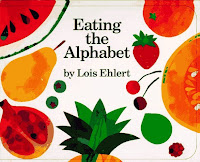
Eating the Alaphabet
by Lois Ehlert
978-0152010362
(see also: Growing Vegeltable Soup )
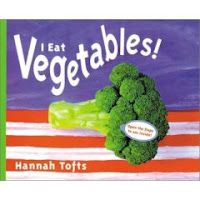
I Eat Vegetables
by Hannah Tofts
978-1840890280
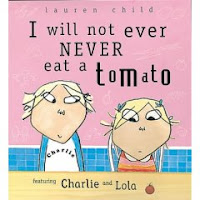
I will not ever NEVER eat a tomato
(in pop-up!)
by Lauren Child
978-0763637088
Sunday, April 13, 2008
Wednesday, April 9, 2008
gardenerd
The two
They are currently playing a game of Go Fish in the department display case with my playing cards - which I used to keep in the pocket of my apron at the greenhouse .... ;) Almost all of the flowers on the cards grow native around here - or are available at the nurseries.
The one that look like Dracula belongs to Monica Flegel, the other is mine - my daughter is afraid of his eyebrows. Silly as they are, we love our Williams. :)
Gardens and literature, literature and gardens.
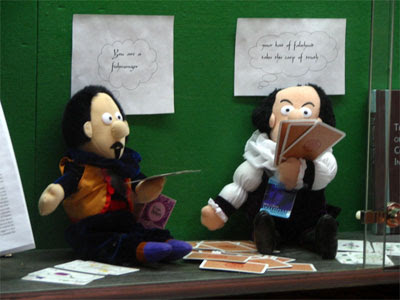
the dish I'm in
I was thinking today about life, the basics - elements...thinking about soil. Putting it all together for the FSRN garden, thinking about the "rugby soil".
I have a strong but fuzzy memory of my Dad sitting on the edge of my bed when I was young, home sick. He's dressed and ready for work, and he has come in to say goodbye - but before he leaves he tells me all about the cells in my body, and bacteria, and the importance of building as many healthy cells in my body so they could be a strong army against the ones that were making me sick. He explained it such a way that I was left feeling like I'd been placed in a petri dish; but I understood "sick" in different way than before, and it made sense. He placed me in numerous petri dishes, and I'm glad he did - because I called upon that nook in my memory today, thinking about soil.
Seeds and soil I should say. I 'm planning for seeds, ordering seeds, but not knowing yet what the story of the soil is. From pig farm to rugby field to FSRN garden/habitat and so it unfolds... I couldn't think about the seeds without thinking about the soil, and what the soil needs in order to provide optimum nutrients to our food plants so that our food can provide optimally for us.
...Can I seriously send out a communications bulletin requesting donations of earthworms? The compost trench will have to be a project and on-going experiment in itself. Building up the soil; beginning and thinking about the basics.
Years ago my mother gave me this book; now tattered (not torn) and very well read. It too changed the way I think about "me", biologically, and how I feed my body. I see myself standing there in the FSRN garden, in my pink boots (which just might be a tad too big in scale in my sketches) feeling like just another small (but important) organism with this huge dish around me....I think and I wonder: who am I swimming with, what is all here, how does this all fit together? So many questions. I do know that if I feed it well, it will feed me well - and that is all it really boils down to. Building blocks.
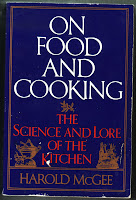
On Food and Cooking
The Science and Lore of the Kitchen
Harold McGee
Scribner, New York
978-0684800011
this book will change the way you think about food forever
soil brainstorm:
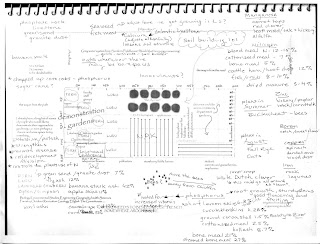
Tuesday, April 8, 2008
seeding
....ordering seeds from Salt Spring Seeds , also finding:
- for the kids: bean-keepers from evergreen.ca
- planetnatural.com
- avant-gardening.com organic gardening tips
Sunday, April 6, 2008
Food Security Research Network garden plans continue
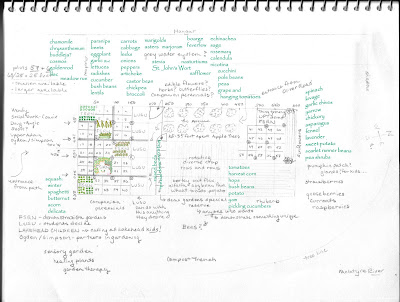
more links to more information:
The Rodale Institute champions organic solutions for the challenges of global climate change, better nutrition in food, famine prevention and poverty reduction - New Farm magazine, and Organic Kids
The Apple Grower
For Hunger-Proof Cities : Sustainable Urban Food Systems









